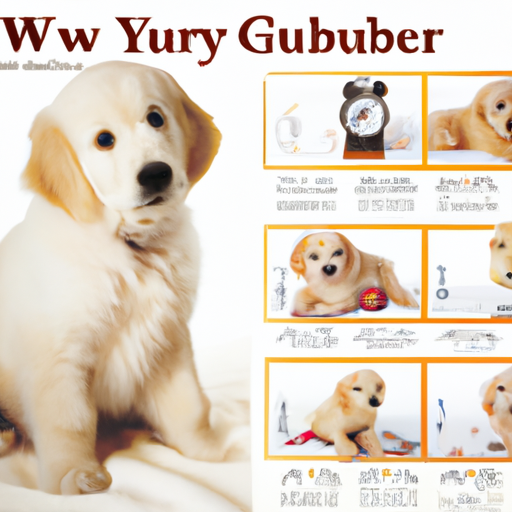Understanding the Puppy Stage
As a caregiver to a puppy, you might often find yourself wondering, “How long does the puppy stage last?” The answer to this is not as straightforward as you might think. Puppies, just like human children, develop at different rates and the duration of their puppyhood can depend on a variety of factors such as breed, size, and health.
The Timeline of Puppy Development
Let’s delve into the timeline of puppy development:
- Birth to 2 weeks – The Neonatal Period
- 2 to 4 weeks – The Transitional Period
- 4 to 12 weeks – The Socialization Period
- 3 to 6 months – The Juvenile Period
- 6 to 18 months – The Adolescent Period
Remember that these stages are not set in stone, and your puppy might move through them at their own pace.
Different Stages, Different Needs
Each stage of your puppy’s development comes with its own unique needs and challenges. Let’s take a closer look:
- Neonatal Period: Puppies are helpless and completely dependent on their mother for everything, from warmth to nutrition.
- Transitional Period: Puppies start to open their eyes, develop their sense of hearing and begin to explore their surroundings.
- Socialization Period: This is when puppies should be exposed to a variety of people, environments, and other animals to build their confidence and social skills.
- Juvenile Period: Puppies start to exhibit independence and may test boundaries. This is a critical time for training and behavior shaping.
- Adolescent Period: Puppies mature into adults and their sexual behavior becomes more apparent. They also reach their full size during this stage.
The Role of Size and Breed
Size and breed play a significant role in determining how long the puppy stage lasts. For example, small breeds tend to mature faster than larger breeds. Here’s a simple table to help you understand:
| Breed Size | Transition to Adulthood |
|---|---|
| Small Breeds | 9 to 12 months |
| Medium Breeds | 12 to 16 months |
| Large Breeds | 18 to 24 months |
Remember, these are just averages and individual dogs may vary.
Navigating the Puppy Stage
During the puppy stage, patience is key. It’s important to remember that your puppy is not just being stubborn or difficult on purpose. They are learning about the world around them, and it’s your job to guide them through this journey.
Dealing with Challenges
The puppy stage can be a challenging time, filled with moments of frustration and confusion. But don’t despair! Here are some tips to guide you:
- Consistent Training: Regular and consistent training sessions can help your puppy learn the rules of the house.
- Positive Reinforcement: Rewarding good behavior encourages your puppy to repeat it.
- Socialization: Expose your puppy to different environments, people, and animals to boost their confidence.
- Routine: A consistent routine can provide a sense of security for your puppy.
FAQ
Q: When do puppies typically stop growing?
A: Small and medium-sized breeds typically stop growing by 12-18 months of age, while larger breeds may continue growing until they are 2 years old.
Q: Is the puppy stage the hardest stage of dog ownership?
A: The puppy stage can be challenging due to the high energy levels and need for constant supervision. However, with patience and consistent training, this stage can also be an incredibly rewarding time.
Q: How long does the ‘puppy biting’ phase last?
A: The puppy biting phase is a natural part of their development and usually starts to subside around 6 months of age, but it can last longer if not properly managed.
In conclusion, the length of the puppy stage can vary greatly, but you can expect to navigate this exciting and challenging period for at least the first year or two of your dog’s life. Remember, every puppy is unique and will develop at their own pace. As a caregiver, your job is to provide guidance, patience, and lots of love along the way.



